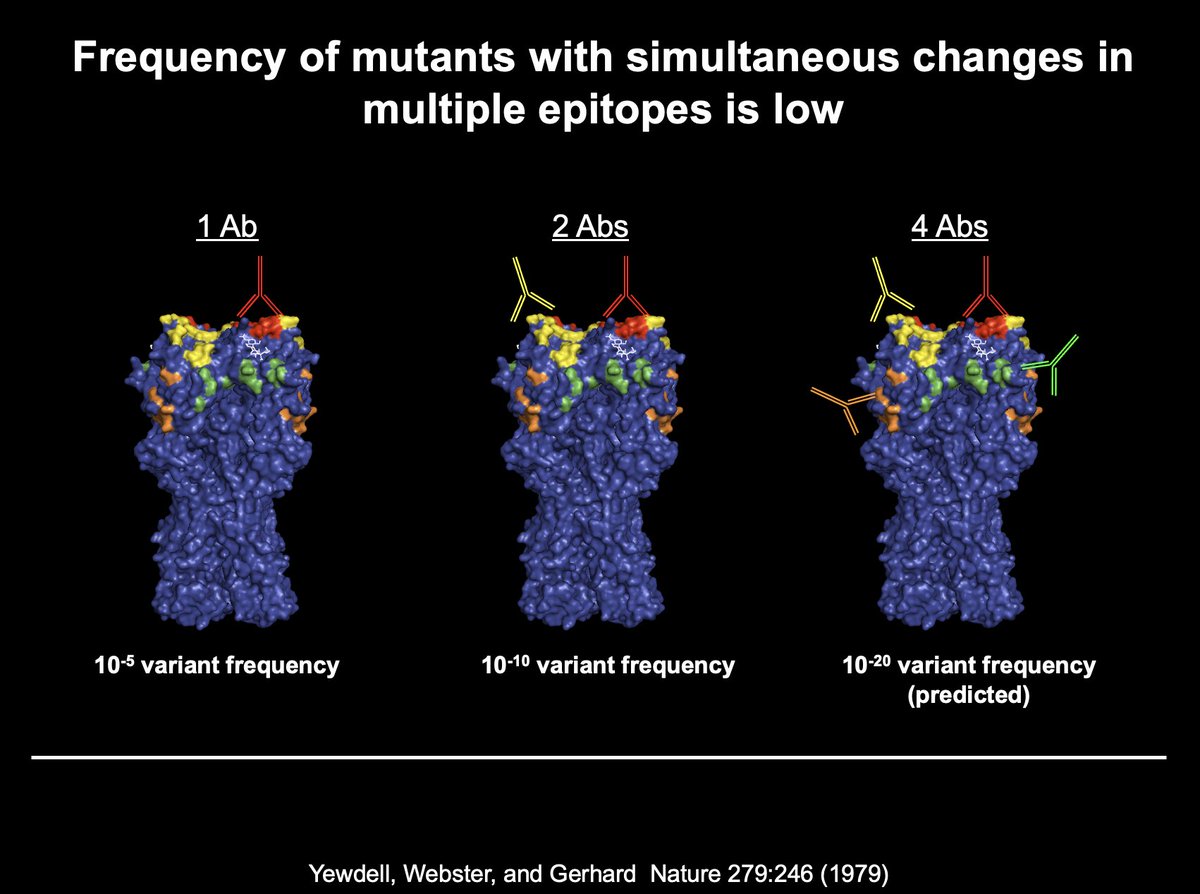
Our new study evaluating the relationship between common coronavirus antibodies and SARS-CoV-2 susceptibility using a cohort of >2,000 health care workers is now up at @medrxivpreprint. (1/n)
medrxiv.org/content/10.110…
medrxiv.org/content/10.110…
We collected serum samples from 2,043 health care workers during the first wave of SARS-CoV-2 activity in Philadelphia, PA. We identified a subset of health care workers who went on to become infected with SARS-CoV-2 after we collected serum samples. (2/n) 

Individuals infected during the first wave of SARS-CoV-2 activity in Philadelphia mounted long lived antibody responses and we identified only one potential re-infection event during the second wave. (3/n) 

The most interesting part of our study is the analysis of samples from individuals who were not infected during the first SARS-CoV-2 wave but were infected during the second SARS-CoV-2 wave. (4/n)
Since we collected serum samples from individuals before the second viral wave, we were able to evaluate correlates of protection associated with preventing SARS-CoV-2 infections in individuals who have not been previously exposed to the virus during the first wave. (5/n)
We previously demonstrated that some individuals possessed pre-pandemic antibodies that could bind to SARS-CoV-2, but these antibodies are non-neutralizing and not associated with protection: (6/n)
cell.com/cell/fulltext/…
cell.com/cell/fulltext/…
Consistent with our previous studies, we found that pre-infection antibodies reactive to SARS-CoV-2 proteins were rare and at similar levels in health care workers who were and were not infected with SARS-CoV-2. (7/n) 

Similarly, we found that antibody titers to common coronaviruses were not associated with protection from PCR-confirmed SARS-CoV-2 infections. (8/n)
COOLEST PART: In individuals infected with SARS2 for the first time, Abs against common betacoronaviruses were associated with limiting the duration of symptoms following SARS2 infection but rare cross-reactive Abs that bound to SARS2 were not associated with protection. (9/n) 

It may seem contradictory that common betacoronavirus antibody levels, but not SARS-CoV-2 antibody levels, are associated with reduced symptom duration in individuals who are infected with SARS-CoV-2 for the first time. (10/n)
However, the cross-protection afforded by common betacoronaviruses is likely not mediated by rare antibodies that cross-react to SARS-CoV-2 proteins. Instead, this protection might be mediated by cellular immune responses, which can target conserved epitopes. (11/n)
People who have been recently infected with common betacoronaviruses have higher levels of Abs against these viruses, and therefore elevated levels of Abs against OC43 and HKU1 may serve as an ‘immunological stamp’ that dates how recently an individual was exposed. (12/n)
Our data are consistent with a recent EHR study that suggested that recent common coronavirus infections were associated with reducing the severity of COVID-19. (13/n)
jci.org/articles/view/…
jci.org/articles/view/…
Our data are consistent with the emerging hypothesis that cellular immune responses elicited by recent common betacoronavirus infections might transiently reduce disease severity following SARS-CoV-2 infections. (14/n)
This was a huge collaborative effort at @Penn and @PennMedicine that was initiated in the early days of the pandemic. Special thanks to @sixers @JoelEmbiid @Eagles for philanthropic support to get this study off the ground. 15/15
• • •
Missing some Tweet in this thread? You can try to
force a refresh





